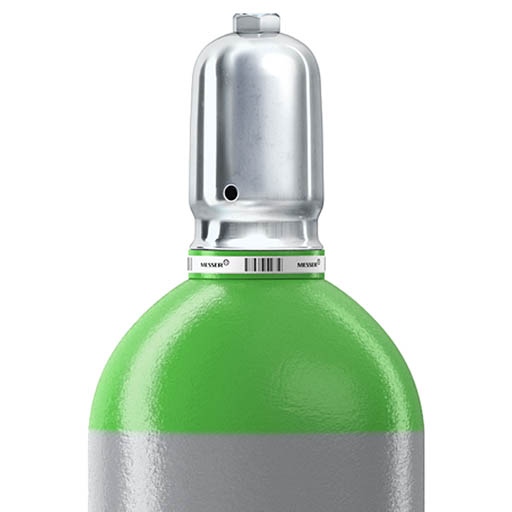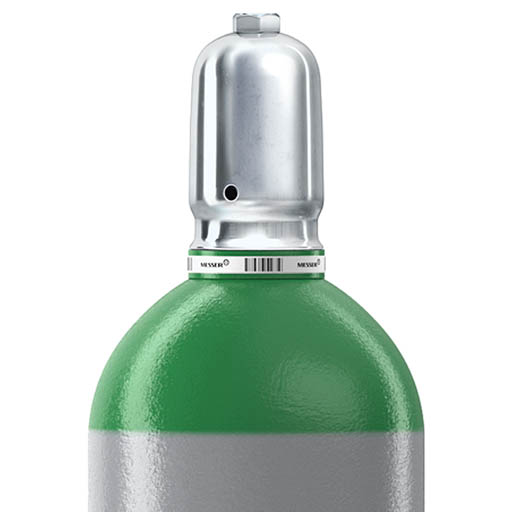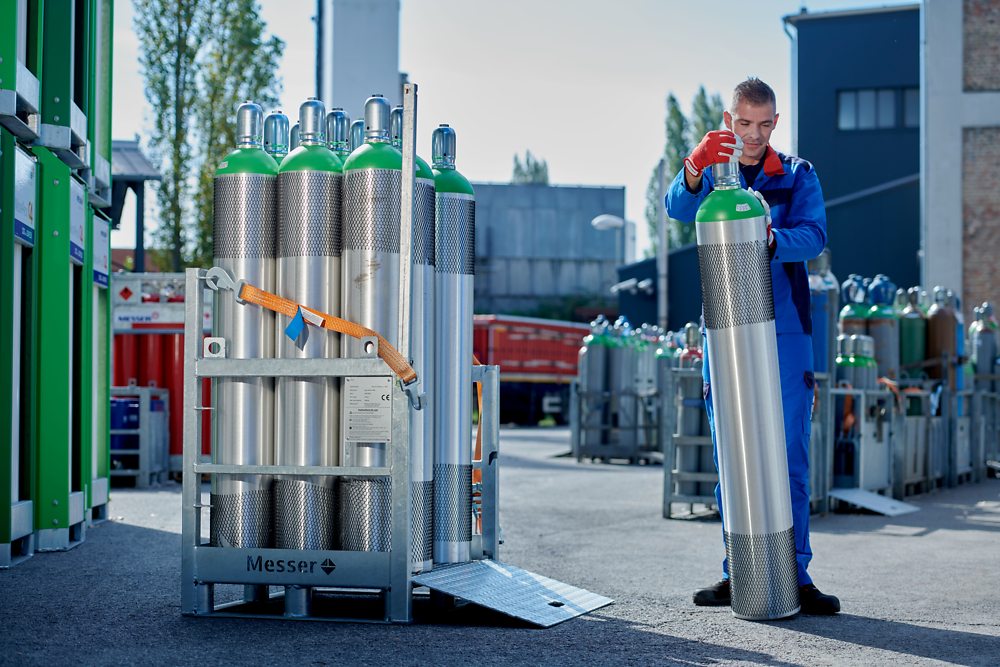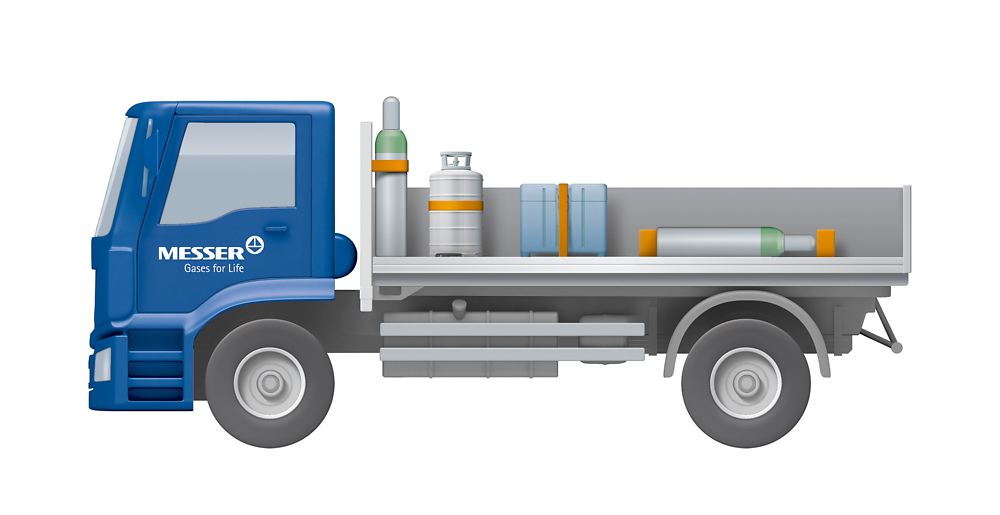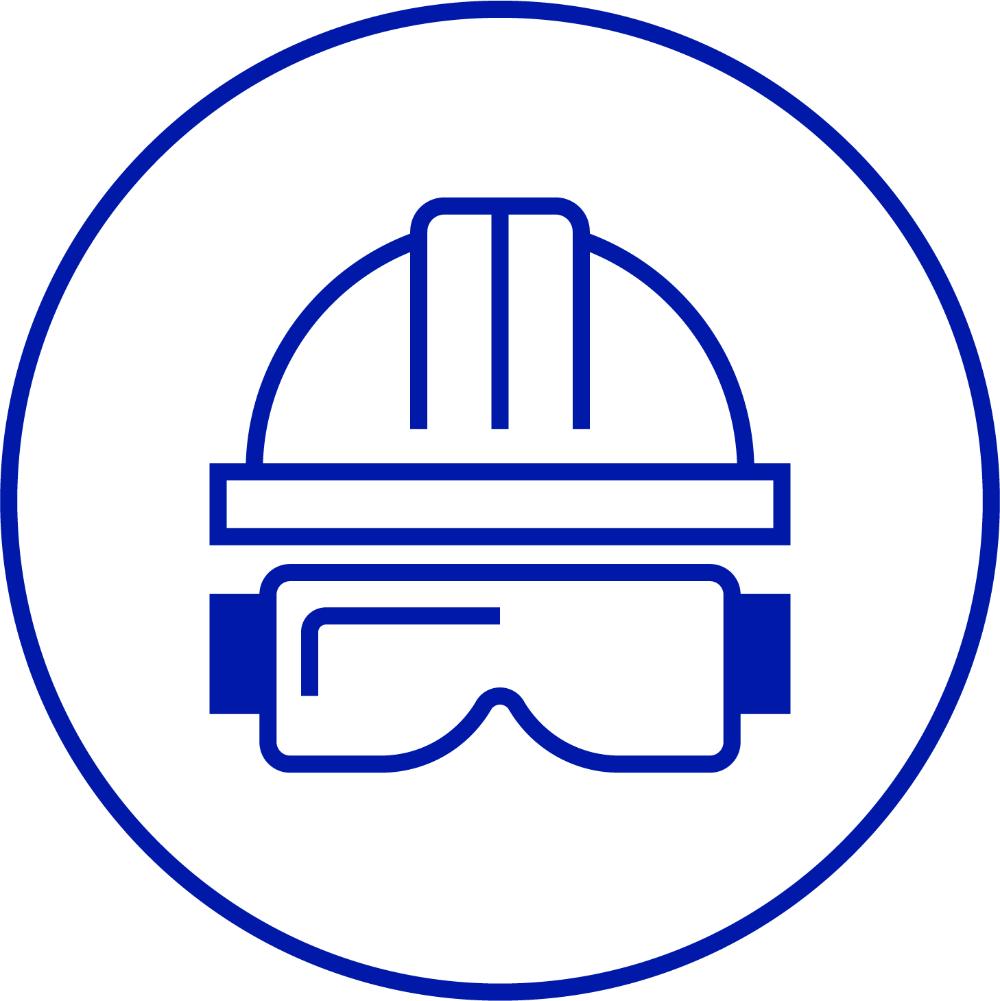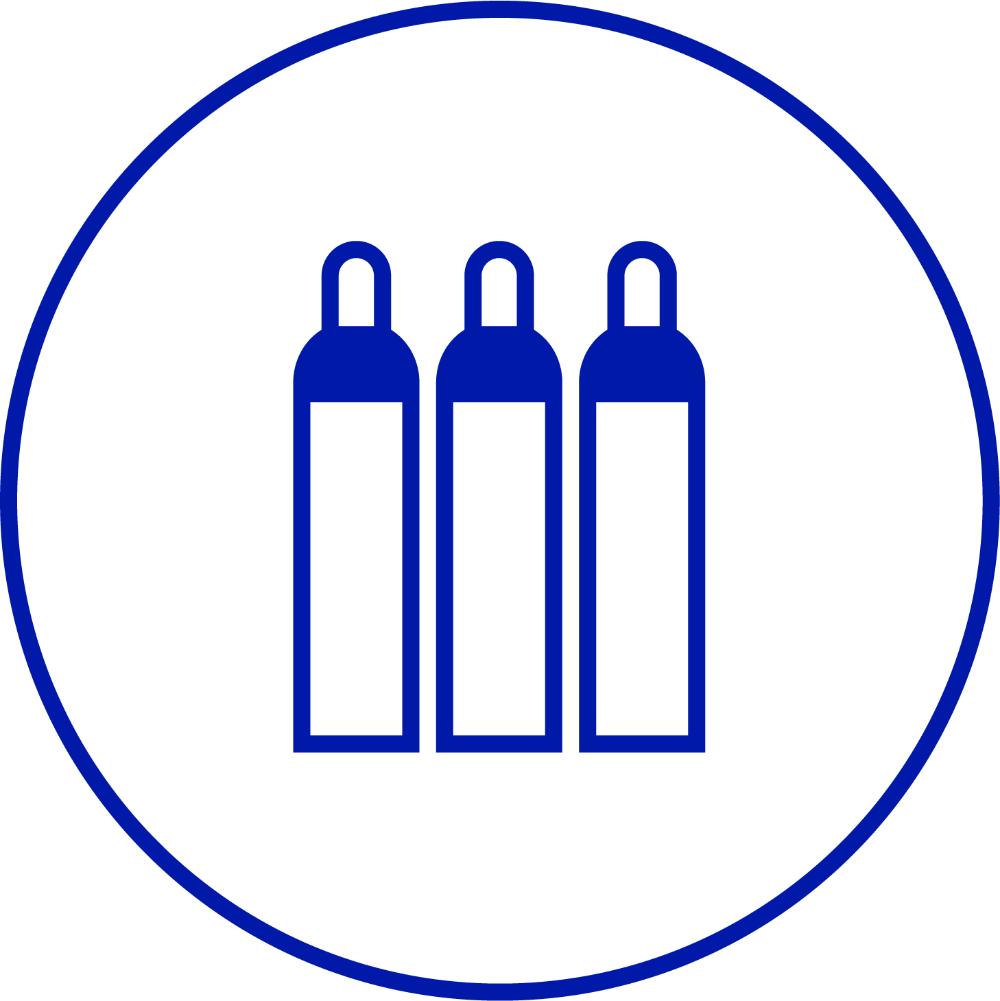Safe handling of compressed gases in containers – Quality & Service – Messer - Specialty Gases
Safety is the top priority when handling gases. The safe handling of gases – especially compressed gases and compressed gas containers – requires clear safety instructions and compliance with legal regulations. This includes the transport, storage, provision, emptying, and use of various gases in industry and laboratories.
Important aspects of safe gas handling
Pressurized gas containers and gas supply systems are subject to strict safety guidelines. Proper handling of these components is crucial to prevent accidents and ensure operational safety. Safety when handling gases includes the safe storage of gas cylinders, the proper transport of pressurized gas containers, the use of appropriate protective measures, and the clear labeling and regular inspection of equipment.

